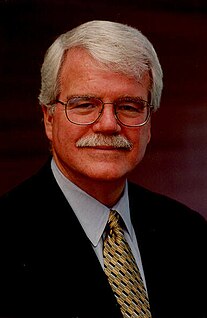
George Miller III is an American politician who served as a U.S. Representative from California from 1975 to 2015. A member of the Democratic Party, he represented the state's 7th congressional district until redistricting in 2013 and 11th congressional district until his retirement. Miller served as Chairman of the House Natural Resources Committee from 1991 to 1995 and Chairman of the House Education and Labor Committee from 2007 until 2011.
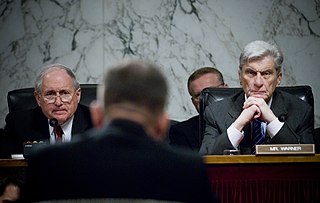
A congressional committee is a legislative sub-organization in the United States Congress that handles a specific duty. Committee membership enables members to develop specialized knowledge of the matters under their jurisdiction. As "little legislatures", the committees monitor ongoing governmental operations, identify issues suitable for legislative review, gather and evaluate information, and recommend courses of action to their parent body. Woodrow Wilson once wrote, "it is not far from the truth to say that Congress in session is Congress on public exhibition, whilst Congress in its committee rooms is Congress at work." It is not expected that a member of Congress be an expert on all matters and subject areas that come before Congress. Congressional committees provide valuable informational services to Congress by investigating and reporting about specialized subjects.
A select or special committee of the United States Congress is a congressional committee appointed to perform a special function that is beyond the authority or capacity of a standing committee. A select committee is usually created by a resolution that outlines its duties and powers and the procedures for appointing members. Select and special committees are often investigative, rather than legislative, in nature though some select and special committees have the authority to draft and report legislation.
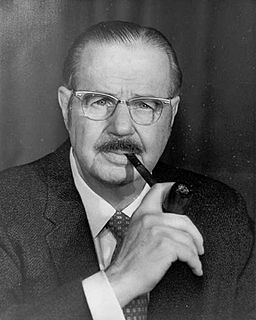
Hugh Doggett Scott Jr. was an American lawyer and politician. A member of the Republican Party, he represented Pennsylvania in the US House of Representatives from 1947 to 1959 and in the US Senate, from 1959 to 1977. He served as Senate Minority Leader from 1969 to 1977.

Jacob Koppel Javits was an American politician who represented New York in both houses of Congress.
The United States Senate Committee on Veterans' Affairs deals with oversight of United States veterans problems and issues.
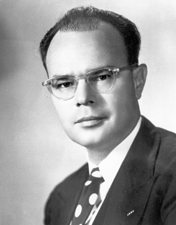
Charles Edward Potter was a U.S. Representative and a U.S. Senator from the state of Michigan.

Elections to the United States House of Representatives for the 80th United States Congress took place in 1946. These midterm elections occurred 19 months after President Harry S. Truman assumed office upon the death of Franklin D. Roosevelt.

Edith Nourse Rogers was an American social welfare volunteer and politician who served in the United States Congress. She was the first woman elected to Congress from Massachusetts. Until 2012, she was the longest serving Congresswoman and was the longest serving female Representative until 2018. In her 35 years in the House of Representatives she was a powerful voice for veterans and sponsored seminal legislation, including the Servicemen's Readjustment Act of 1944, which provided educational and financial benefits for veterans returning home from World War II, the 1942 bill that created the Women's Army Auxiliary Corps (WAAC), and the 1943 bill that created the Women's Army Corps (WAC). She was also instrumental in bringing federal appropriations to her constituency, Massachusetts's 5th congressional district. Her love and devotion to veterans and their complex needs upon returning to civilian life is represented by the Edith Nourse Rogers Memorial Veterans Hospital in Bedford Massachusetts that is named in her honor.

The 80th United States Congress was a meeting of the legislative branch of the United States federal government, composed of the United States Senate and the United States House of Representatives. It met in Washington, DC from January 3, 1947, to January 3, 1949, during the third and fourth years of Harry Truman's presidency. The apportionment of seats in this House of Representatives was based on the Sixteenth Census of the United States in 1940. Republicans gained a majority in both chambers for this Congress having gained thirteen Senate seats and fifty-seven House seats. Although the 80th Congress passed a total of 906 public bills, President Truman nicknamed it the "Do Nothing Congress" and, during the 1948 election, campaigned as much against it as against his formal opponent, Thomas E. Dewey. The 80th Congress passed several significant pro-business bills, most famously the Marshall Plan and the Taft–Hartley Act, but it opposed most of Truman's Fair Deal bills. Truman's campaign strategy worked, and the Republicans lost nine Senate seats and seventy-three seats in the House, allowing the Democrats to begin the 81st Congress with twenty-one more seats than they had at the end of the 79th Congress. It also allowed Truman to win a term of his own right as President, having become President after the death of Franklin D. Roosevelt in 1945.

The 79th United States Congress was a meeting of the legislative branch of the United States federal government, composed of the United States Senate and the United States House of Representatives. It met in Washington, DC from January 3, 1945, to January 3, 1947, during the last months of Franklin D. Roosevelt's presidency, and the first two years of Harry Truman's presidency. The apportionment of seats in this House of Representatives was based on the Sixteenth Census of the United States in 1940. Both chambers had a Democratic majority.

The Truman Committee, formally known as the Senate Special Committee to Investigate the National Defense Program, was a United States Congressional investigative body, headed by Senator Harry S. Truman. The bipartisan special committee was formed in March 1941 to find and correct problems in US war production with waste, inefficiency, and war profiteering. The Truman Committee proved to be one of the most successful investigative efforts ever mounted by the U.S. government: an initial budget of $15,000 was expanded over three years to $360,000 to save an estimated $10–15 billion in military spending and thousands of lives of U.S. servicemen. For comparison, the entire cost of the Manhattan Project was $2 billion, at the time. Chairing the committee helped Truman make a name for himself beyond his political machine origins and was a major factor in the decision to nominate him as vice president, which would propel him to the presidency after the death of Franklin D. Roosevelt.
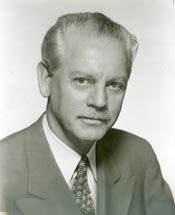
Cecil Rhodes King was an American businessman and politician. King, a Democrat, served as the first member of the United States House of Representatives from California's 17th congressional district for fourteen terms, serving from August 1942 to January 1969. King was first elected by special election on August 25, 1942 after previously serving out the term of Lee E. Geyer who had died in Washington, D.C. on October 11, 1941.
The Legislative Reorganization Act of 1946 was the most comprehensive reorganization of the United States Congress in history to that date.
The Joint Committee on the Organization of Congress is the name given to three separate temporary joint congressional committees established during the mid to late 20th century to study and make recommendations on measures to improve the structure of the U.S. Congress, including committees, staff, and other organizational matters.

James Robert Mann was a World War II soldier, lawyer and Democratic United States Representative from South Carolina.
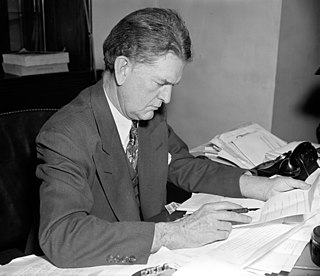
Edward Eugene "Eugene" or "Goober" Cox served as a US Representative from Georgia for nearly 28 years. A conservative Democrat who supported racial segregation and opposed US President Franklin Roosevelt's "New Deal," Cox became the most senior Democrat on the House Committee on Rules.

Omar Truman Burleson was an attorney, judge, FBI agent and veteran of World War II when he was first elected in 1946 as a Democratic U.S. Representative from Texas's 17th congressional district. He was re-elected to Congress from this rural district for more than 30 years, resigning in December 1978 rather than run again for office.

The 1946 United States elections were held on November 5, 1946, and elected the members of the 80th United States Congress. In the first election after the end of World War II, incumbent President Harry S. Truman and the Democratic Party suffered large losses. After having been in the minority of both chambers of Congress since 1932, Republicans took control of both the House and the Senate.
The presidency of Harry S. Truman began on April 12, 1945 when Harry S. Truman became president upon the death of Franklin D. Roosevelt in the last months of World War II, and ended on January 20, 1953.














